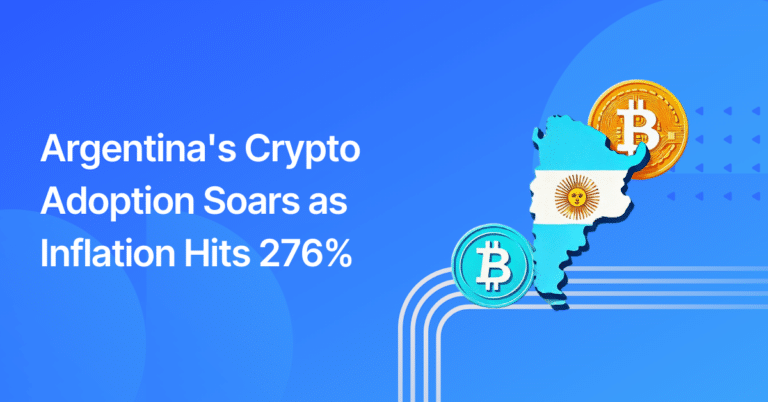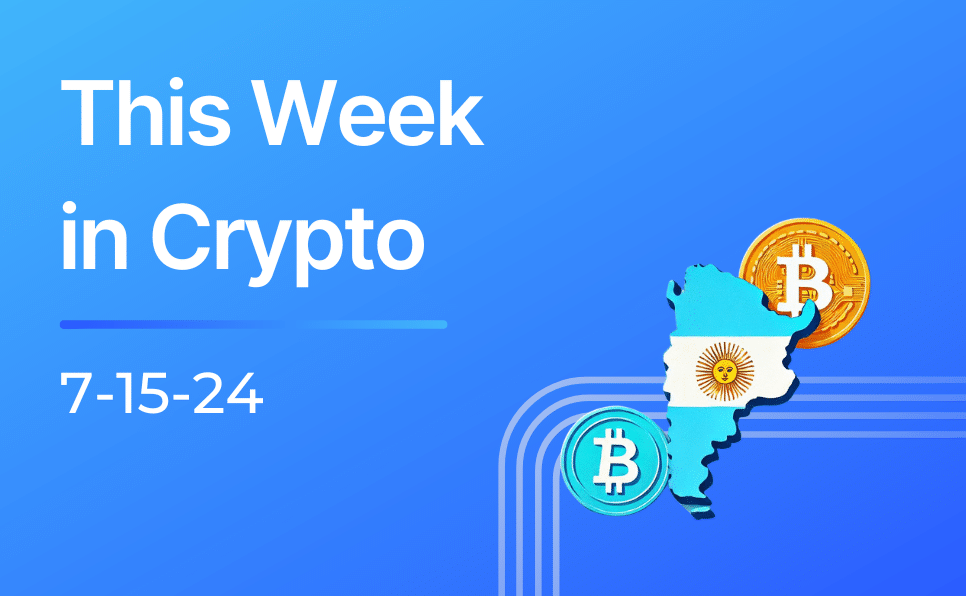Welcome to This Week in Crypto, your go-to source for the latest happenings in the world of digital currency. This week, we delve into Argentina’s soaring crypto adoption amid a severe inflation crisis, the significant drop in Bitcoin transaction fees to their lowest levels in four years, and Germany’s recent sell-off of its remaining Bitcoin holdings. Let’s explore how these events are shaping the future of cryptocurrency.

Argentina’s Crypto Adoption Soars as Inflation Hits 276%
Argentina is witnessing a remarkable surge in cryptocurrency adoption as the country grapples with an astonishing 276% annual inflation rate. According to Forbes, Argentina now leads the Western Hemisphere in the percentage of its population using cryptocurrencies. Data shows that out of 130 million visitors to 55 major exchanges worldwide, 2.5 million were from Argentina. This heightened interest has also positioned Argentina as the top market for one of the world’s largest crypto exchanges, accounting for 6.9% of its total traffic.
The inflation crisis has driven many Argentines to seek financial stability through stablecoins like Tether (USDT). Unlike the trend in other regions where memecoins are popular, Argentines primarily buy and hold USDT to protect their savings from devaluation. Maximiliano Hin, head of Latin America for crypto exchange Bitget, highlighted that Argentines tend to buy USDT and hold onto it, avoiding further trading activities since stablecoins like USDT maintain their value by being pegged to the US dollar. Despite limited regulatory protections for stablecoin investors, the trend underscores a strategic shift by Argentines to shield their wealth from the negative effects of inflation.

Average Bitcoin Transaction Fee Drops to Four-Year Low
On July 7, the average Bitcoin transaction fee fell to $38.69 – the lowest level in four years. This average fee reflects the overall cost miners charge to process transactions on that particular day. However, it’s important to note that most smaller transactions typically incur much lower fees than this average. The drop in average fees is due to lower demand for block space and reduced data volume, yet miners remain profitable because of decreased network difficulty and lower computational power requirements.
Despite the reduced fees, the Bitcoin network processed 673,752 transactions on July 7. Bitcoin transactions comprised 89.7% of this total, while other protocols like Ordinals, BRC-20, and Runes accounted for the remaining 10.3%. This significant decrease in average transaction fees highlights a more efficient use of the Bitcoin network, benefiting users with smaller transactions while maintaining overall miner profitability.

Germany Sells Last of Its Bitcoin Holdings
Germany’s government sold the last of its Bitcoin holdings late last week, according to Arkham Intelligence. The final transaction involved 3,846 Bitcoin, transferred to entities likely representing institutional or over-the-counter services. This sale followed weeks of increased selling activity, during which the German government sold tens of thousands of Bitcoin in multiple transactions totaling $2.9 billion.
Over the past three weeks, the government offloaded approximately 50,000 Bitcoin, mainly from an asset seizure. This significant sell-off contributed to keeping Bitcoin’s market price below the $60,000 mark for a couple weeks. However, between Germany depleting its Bitcoin reserves and Mt. Gox’s $9 billion reimbursement plan, Bitcoin’s price has held relatively steady – currently over $63,000 at the time of writing.








